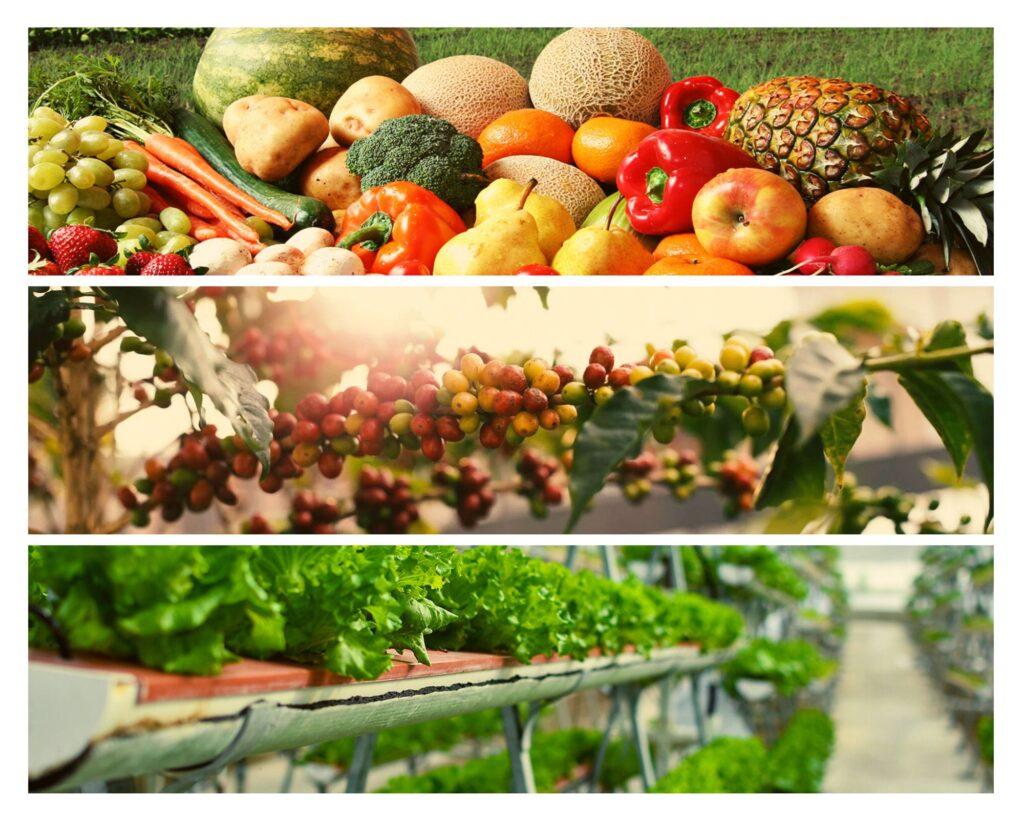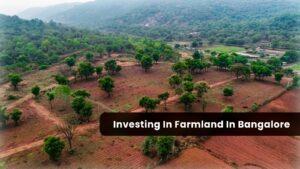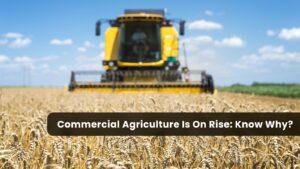Did you know that agriculture is a crucial component of national wealth and independence and has great strategic importance?
We have all heard for a very long time that the agriculture industry employs the greatest number of people. But do you believe that all of this would have been possible if conventional agricultural practices had been followed? No. Similar to how technology has revolutionized, the agricultural industry too has to adapt in order to keep up and preserve its position.
In this blog we are going to learn about all the recent economic trends, opportunities and challenges posed by agriculture on its investments.
Agricultural Investment Trends:

Growth of Organic Products – If you’ve observed, since the year 2020, there has been a major shift in the public’s demand for food habits. More people than ever are aware of the need of eating healthy food owing to the covid. As a result, consumers are switching to organic food products. Therefore, the development of organic products in agricultural areas is particularly advantageous for the investors as it will also enable them to boost their revenue.
Adapting Vertical Integration – The year is 2022, and people are unquestionably becoming more interested in crop quality as opposed to only quantity. With this in mind, it is suggested that investors choose vertical integration, which is the fusion of several different production organisations into one. This type of integration encourages tighter quality control, lower costs, and higher operational effectiveness. As a result, the investors will be able to stay informed with technology, maintain their market value over the long term, and succeed.
Cultivation of Coffee Plantations – If there is one thing that both Gen Z and millennials will concur on, it is their fondness of freshly brewed coffee. According to statistics, individuals drink 65% of their coffee during breakfast, and there are an estimated 1 billion coffee drinkers worldwide. These statistics, in our opinion, are sufficient to demonstrate that growing coffee on your agricultural land is a trend you need to adopt right away in order to reap long-term rewards and maximize your return on investment.
Integrating Controlled Environment Agriculture – By 2050, 68% of the world’s population, or close to 55% of all people, will likely reside in urban regions. Along with it, there is an increase in food demand, which we are unsure will be met by our agricultural lands because they are a limited resource. This circumstance necessitates a shift to a food production strategy based on technology. Crops can be grown via controlled environment agriculture without taking up a lot of space. Production is carried out inside a building or greenhouse, which ensures that the plants are given all the conditions they need to grow. This gives investors the chance to profit from a current trend.
Agricultural Investment Opportunities:

Agriculture Consultants – Given the significance of eating well and staying well, farm owners search for employees who are knowledgeable about agriculture and can help them make good money from their products. Herein lies the function of an agricultural assistant. They will assist in advising and instructing farmers on farming best practices as an agro consultant. Agri consultants’ primary responsibility is to advise clients on high yield seedlings, soil management, and other cutting-edge practices. They also assist farmers augment their traditional expertise with new tools and technologies to boost yields and create healthier goods. Both city and state employees, members of the private sector, and independent contractors require the services of consultants.
Farm Produce Processing and Packaging – Food processing is a significant and profitable component of the value chain in the agricultural business, from rice to wheat to lentils. With the growth of the middle class and urbanization, there is an increased desire for processed, branded, and packaged food. If you walk into any grocery store or supermarket, you will easily find a range of well-packed and processed farm produce. Additionally, consumers are becoming more health conscious and aware of the necessity to include nutrition in packed foods. Entrepreneurs have a fantastic opportunity to profit from this area of the agricultural industry.
Farm Transportation – Small farmers who want to send their produce to market may face significant transportation obstacles. How a farmer delivers goods into the supply chain may be impacted by limited transportation options. Access to transportation for farmers may prove to be a successful commercial enterprise with a solid business plan. Tractors, trailers, and other equipment made specifically for livestock production are resources that entrepreneurs might offer.
Agricultural Investment Challenges:
Reliance on the Monsoon – A delay in the monsoon’s arrival or insufficient rains have a significant negative impact on agricultural productivity in India, where more than 60% of farmland is rain-fed. It also causes changes in wages, prices, and employment. The ever-present threat of global warming has increased the vulnerability of agriculture to catastrophic weather.
Ownership of Land – The average land holding has been significantly reduced as a result of growing demographic pressure, covert employment in agriculture, and conservation of agricultural land for alternate uses. The bulk of farmers have modest plots of land, whereas just a few significant farmers control enormous pieces. Peasants frequently have debt because they are unable to earn enough market surplus.
Cropping Manner – Due to technology, irrigational facilities, etc., certain crops are grown in areas that are not ideal for them. This has negatively impacted the health of the land, causing issues including soil salinity and water logging, among others.
Holding Segmentation and Fragmentation – Small and marginal farmers make up 86% of the farming population in our nation. This reveals unsustainable and expensive levels of land holding fragmentation. Agriculture land has been continuously divided into smaller and smaller plots as a result of population increase, urbanization, and the dissolution of the joint family system. The fragmentation of land holding is another effect of migration.
Conclusion
Agriculture has a direct or indirect impact on everything, including our shelter, clothes, and eating habits. The aforementioned trends and chances in agricultural investment have paved the road for you to comprehend how you can go over the current difficulties in the agricultural industries.
Mogg’s Estates is a managed farmland company in Bangalore and focuses mostly on doing what’s best for the environment and boosting economic prosperity in the agricultural industry. You can call us at +91- 9513655556 if you have any questions about agricultural investments or need financial guidance in this area. You can also visit our website at www.moggs.in



